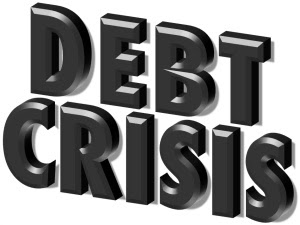The rising national debts and the warning that majority of countries are facing high risk of falling into a debt trap dominated the ongoing African Development Bank Group’s 2021Annual Meetings.
Experts that expressed the fears include the Director-General of the World Trade Organisation (WTO) and ex-Minister of Finance, Dr. Ngozi Okonjo-Iweala; and President of the African Development Bank (AfDB), Dr. Akinwunmi Adesina; as well as Governor of the Central Bank of Egypt (CBE), Tarek Amer.
They warned African political leaders to explore other funding options and scale up debt management transparency.
The experts observed that majority of the countries are grappling with sustainability just as debt servicing has become a major burden on the regional economy.
Okonjo-Iweala observed that the current debt burden pre-dated COVID-19 but was worsened by the pandemic. Noting that “prevention is better than crisis management”, she warned that Africa could not afford to fall into a debt trap again.
According to her, many African countries’ debt to gross domestic product (GDP) ratio ballooned during COVID-19 and the oil market crisis. For instance, she said, Nigeria’s debt to GDP moved up from 29 per cent to 35 per cent during the recent lull in the international crude market.
Recent data shows that the Federal Government spent a sum of N1.02 trillion on domestic and foreign debt service in the first quarter of 2021, representing a 35.7 per cent year-on-year increase compared to N753.7 billion spent in the corresponding period of 2020.
A cursory look at the data released by the Debt Management Office (DMO) reveals that N612.71 billion was spent on domestic debt service, while N410.1 billion was expended on servicing of external debt.
The WTO DG described Africa as an embodiment of the global trickery growth, noting that the continent lags while the advanced economies and China “are growing at a faster rate”.
She noted that the growth prospect was further compromised by the debt burden and uneven COVID-19 vaccination, which could exclude African countries from the travelling space.
Adding that higher debt carriage capacity meant a higher risk of distress, she observed that most African governments considered it convenient to ignore the debt sustainability threshold when “things are good” only to expose themselves to systemic risks when the economy is on a downtrend.
Citing continent-wide research, Adesina said only one out of 38 African countries with sustainability reports was free from sustainability challenges. The rest, he said, had challenges ranging from moderate to high risks.
According to him, to increase sustainability, African countries would need to agree on the convergence of macroeconomic reforms, increase the fight against corruption and deepen domestic resource mobilisation to reduce the risk of a debt crisis.
“There should be full transparency on debt, especially those owed by state enterprises,” he stated, adding that debt relief might not lead to economic growth. He stressed that financial stability was also key to averting the looming debt crisis.




